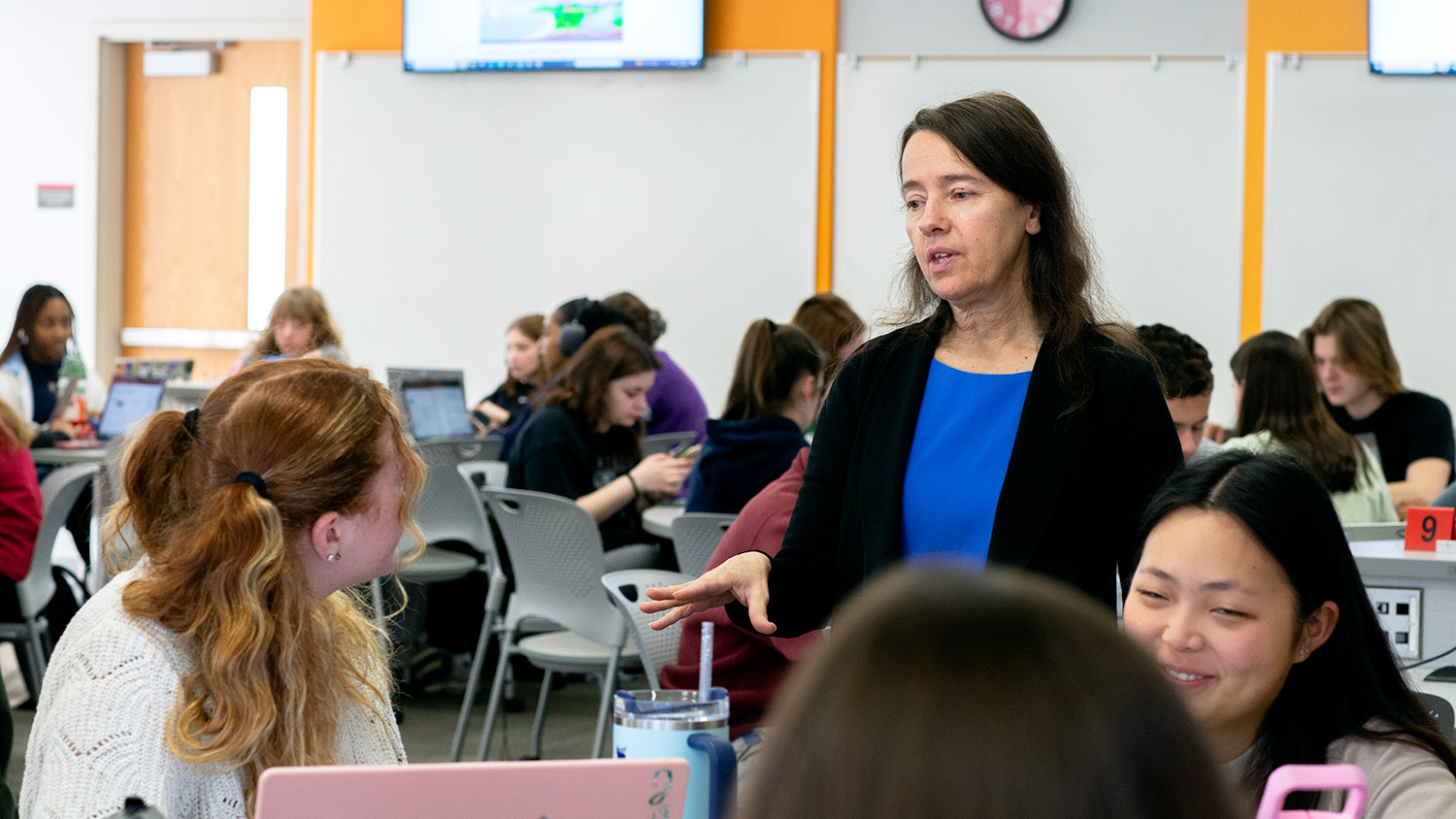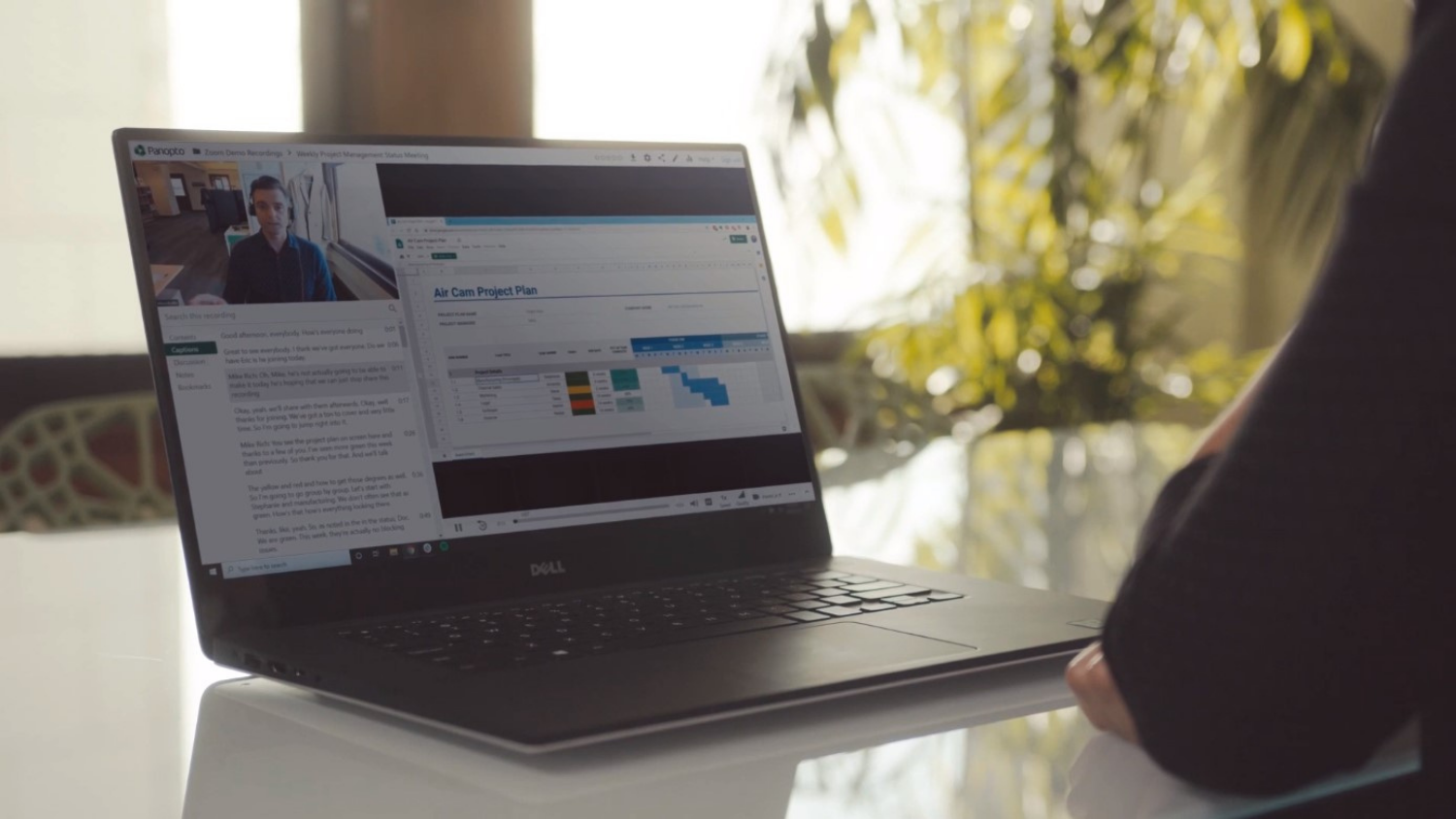Advancing Agile: DELTA Project Managers Transform Teamwork at NC State
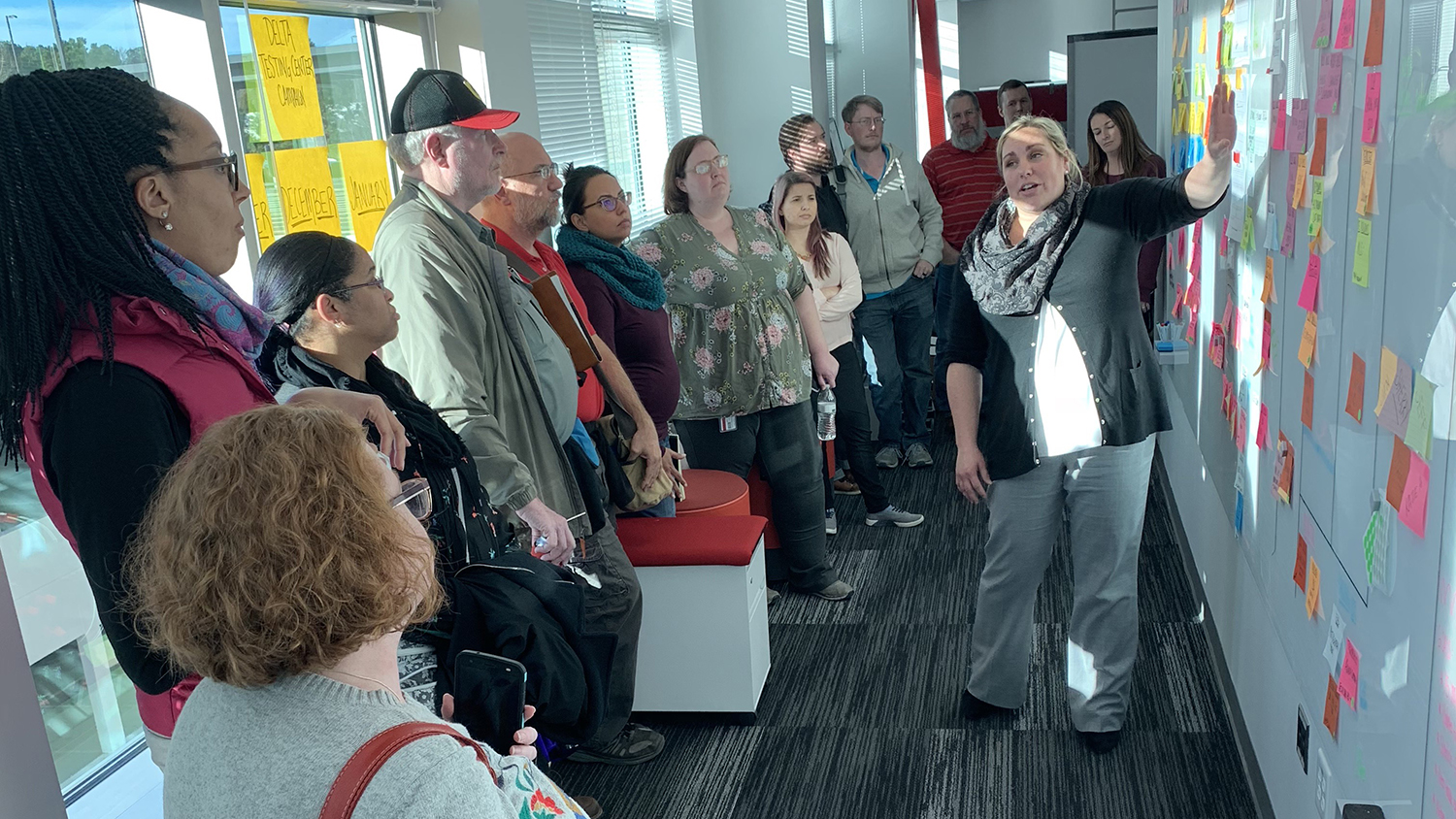
For the past three years, the Project Management (PM) team at DELTA has been implementing Agile, a project management philosophy developed to enhance team processes and the customer experience. From conception to delivery, Agile elevates the life cycle of a project or product.
Associate Director, Project Management Merranie Zellweger and Lead Project Managers Laurie Gyalog and Samantha McCuen have led the charge to integrate Agile practices into DELTA operations such as course grants, learning technology enhancements, internal processes and more.
While much of the work this team does takes place behind the scenes, the impacts of their efforts are visible in some of the organization’s noteworthy successes, like the Exploratory Grant to bring virtual reality into organic chemistry labs. Additionally, Agile practices have earned acknowledgement and become commonplace at DELTA, as the organization embraces and incorporates them into day-to-day work.
The team wanted to share their work with Agile and its benefits throughout NC State, so they formed the Project Management and Agile Community (PMAC), a group that supports connections between different sectors of project management at the university by sharing best practices, addressing challenges and starting a larger conversation about project management.
With enthusiasm and dedication, Gyalog, McCuen and Zellweger are building the foundation for Agile at NC State and contributing to organizational and student success along the way.
What is Agile?
“Agile is built around team effectiveness. All of the principles and manifestos of Agile support the ability for a team to work collectively toward a shared purpose and understanding and in an environment that’s psychologically safe,” says Gyalog.
In this type of environment, everyone knows they can trust their team members, speak openly and make mistakes. Failing fast is a tenet of Agile that’s accepted and embraced because it allows a team to reevaluate, respond and adjust for a better outcome.
“One of the things I love about Agile is that it’s a philosophy,” adds Zellweger. “It’s not a step-by-step guide. You don’t have to do something in an exact or certain way –– you can individualize it.”
When incorporating Agile, it is critical to determine the specific values of every project team. Teams are composed of individuals, and what leadership means to one person may not be shared among the group. Developing common values, goals and priorities is the best way to avoid conflict.
It’s also important to identify the most effective project management style for every team and their goals. Agile consists of several structural frameworks, offering many options to match the unique circumstances of any team or project. The PM team at DELTA is especially experienced in Kanban and Scrum.
According to Gyalog, “Kanban focuses on flow, Scrum focuses on continuous release.” Kanban visualizes tasks with notecards and labeled columns; those familiar with DELTA’s work space will recognize large, colorful boards with neat lines and boxes as Kanban boards. Scrum, on the other hand, is more prescriptive, based on defined roles and incremental delivery.
“[Scrum] is quite rigid. Ironically, within that rigid structure, there’s a lot of adaptability and flexibility. Everything is time-boxed. The time never changes, but what you do within it does,” explains Zellweger.
In conjunction with Agile frameworks, there are plenty of effective management strategies. The PM team is well-versed in how and why to implement these tools, customizing them to different projects for optimal results. Some of their favorites include:
- Retrospectives: Reflective meetings to discuss previous and completed work for the project. Retrospectives help the PM team enhance a psychologically safe environment, celebrate achievements and plan improvements.
- Minimally Viable Products: A basic, working product that serves key objectives. Once this is established, the product is enhanced through cycles of customer feedback.
- Definition of “done”: A clear and shared understanding of what it means when a task or project is finished. Showcasing the definition of “done” in a notable location makes sure that the entire team is in agreement and on track to completion.
- Daily standups: Five- to 15-minute meetings in which the project team stands and shares what has been completed, what they’re working on and what needs more attention. These establish camaraderie and make the most of in-person group interactions.
“Because it’s not one size fits all, we can take some of those big ideas and apply them to specific teams and projects,” says McCuen. “Our [Kanban] boards are very different, and yet they’re effective for both me, Laurie and the teams we work with. At the end of the day, we both end up with better workflows and visualization. You apply it how it makes sense. You don’t have to apply it to all teams, you don’t have to apply it to all projects, and that’s what’s really great.”
Incorporating Agile
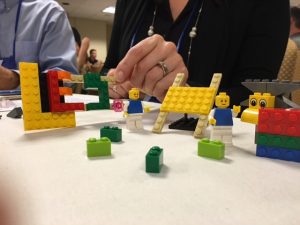
Before Agile, the team was already committed to upholding organizational excellence with new methods, tools and approaches to project management. In an effort to continually improve, they researched the Agile2016 conference and attended with open minds.
“We learned all about the Agile manifesto and values and a variety of frameworks that support Agile. We thought about how they might help us, in bits and pieces, advance our project management practices and enhance our transparency across the organization and our team effectiveness,” says Gyalog.
They returned from the conference inspired to share what they learned, and began by introducing Kanban to the marketing and communications team at DELTA.
Gyalog remembers the profound results they garnered early on. “It really enabled us to provide better customer collaboration, to be more efficient, more effective, and it built better team trust and collaboration.”
“It caught on like wildfire,” adds McCuen. “We not only wanted to share the knowledge, tips and tools we learned, we wanted to put it to practice too.”
When the PM team first applied Agile at DELTA, they made sure to do so quietly. This allowed them to get an accurate sense of whether or not the practices would be effective and well-received.
“For almost four years, we have been gently introducing, trying, tweaking Agile practices in a somewhat subtle way. We are trying to educate people on Agile in general and reinforcing that Agile is a philosophy, not a prescribed step-by-step [process]. I think we’ve done a really good job of educating and reassuring, and then applying some real-world examples,” says Zellweger.
While DELTA colleagues have been receptive to Agile, the philosophy very much challenged the status quo, bringing along its share of challenges.
“Sometimes it’s hard because we’re a very established organization. There’s tradition, history and structure that already exist,” Zellweger continues. “The challenge has been to fit this very fluid, adaptable philosophy to something that is rather established and structured. It may be uncomfortable to try something new, to take a risk. While it’s been a challenge, it’s far from insurmountable, and I think we’ve made huge progress.”
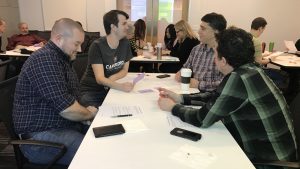
McCuen notes that DELTA’s fearless staff and solid relationships have made the transition to Agile a smooth one:
“Anytime you want to introduce or try something new, there’s a fear factor because you don’t know if it’ll work or not. The great thing about the culture here is that we do try new and innovative things, even if it’s not a technology or tool, but a process, philosophy or an idea.”
To keep Agile practices fresh and in focus, the team hosts a series of presentations at DELTA each year upon returning from Agile’s annual conference to highlight key themes and ideas that would benefit the organization in practice. Topics range from conflict management to leadership to best practices and more.
These activities and accomplishments demonstrate the PM team’s commitment to advancing DELTA’s and NC State’s strategic goals of promoting collaboration, transparency, efficiency and achieving constant improvement. They’ve continued to promote Agile at DELTA and expanded their efforts throughout the university.
Project Management and Agile Community
As the PM team championed Agile close to home, they noticed that there was a need for it beyond DELTA.
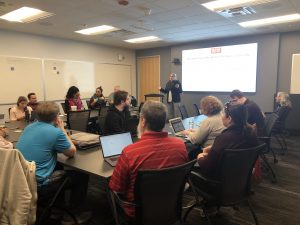
“Over the course of presentations across campus and meeting other staff around the university, we found that there are lots of pockets of project management happening on campus already. We were inspired to build a community where people both involved in and interested in project management, or Agile specifically, could come together and share ideas, interests, pain points, and best practices. We could all learn from one another and gather around a common topic,” says Gyalog.
With these goals in mind, they created the Project Management and Agile Community (PMAC) in February 2019.
Zellweger notes that much of the university operates within respective areas of focus, separated from the many other units on campus who also support NC State. PMAC strives to break down the barriers between campus organizations and come together around the topics of project management and Agile.
“It’s exciting to do this at DELTA, but we wanted to broaden representation and connect dots across the university as well.”
In just a few months, they’ve already connected dots far and wide. The College of Engineering, Division of Academic and Student Affairs, Office of Information Technology, Poole College of Management, University Communications, and Campus Enterprises are just a few of the university organizations that have joined the conversation.
Together, their community transcends organizational boundaries and contributes to university-wide progress.
“All of this ties very closely back to organizational excellence and efficiency,” Zellweger continues. “We can improve our ability to meet student needs and student success, and we feel strongly that our efforts, while behind-the-scenes, can drive us to greater success as an organization and as a university.”
Conferences and Community Building
When the PM team isn’t talking Agile at DELTA or PMAC, there’s a good chance they’re amplifying their message in other ways, like conferences and presentations.
They’ve presented to a variety of groups on campus such as human resources teams, information technology specialists, college-level senior management and faculty members. The PM team’s largest audiences can climb into the hundreds, and members can trust that presentations they see are backed by training and experience. In addition to research and real applications, they boast valuable certifications in Agile frameworks and leadership; McCuen is a Certified Scrum Product Owner® and Certified ScrumMaster® as well as a SAFe 4 Agilist. Gyalog and Zellweger are both Certified Scrum Product Owners® and SAFe 4 Agilists.
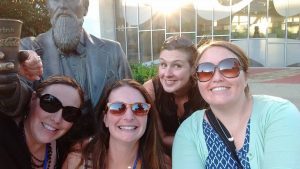
Not only do they share Agile frameworks and best practices, they demonstrate how to apply it successfully to micro- and macro-level tasks within specific organizations.
“The biggest area of interest always seems to revolve around how to successfully implement Agile” says McCuen. “We are fortunate to have drawn resources from multiple places –– attending professional development opportunities, presenting at conferences ourselves, establishing connections and continuing the conversation at PMAC.
If a conference isn’t the best setting to reach a certain group, the PM team finds other ways, like one-to-one consultations and meetings with campus peers. They welcome peers to DELTA so they can witness Agile’s implementation in-person by touring Kanban boards, shadowing meetings and asking questions.
No matter how they deliver their message, they have a good time doing it.
“I love it. Everytime we end a session, I feel good about the connections we continue to make,” McCuen says.
“My favorite part is after we present, when people come up to ask more, and also being able to say, ‘There’s a conversation already happening about this –– come join us at PMAC,'” adds Gyalog.
Outcomes
Agile’s philosophy has already paid off at DELTA and beyond, yielding positive impacts to team collaboration and resulting projects.
The visual nature of Kanban is a perfect example of how Agile practices enhance teamwork.
“I’ve seen increased transparency and visibility as to workload and competing priorities. People are willing to help each other out because they can see if one person has more to do than another,” says Gyalog.
McCuen agrees, “Especially with Kanban [boards] in particular, it’s so great that they live in the hallways here at DELTA. It helps break down the silos between teams, [giving] a look into what each other is doing and an understanding of each other’s workloads; it’s shared understanding and empathy for your team members.”
DELTA staff members have traded lengthy meetings and mountainous inboxes for a revitalized sense of enthusiasm. Tasks that long-ago became dreary haven’t changed with Agile, but the approach to them has.
“One of the changes I’ve seen is renewed energy and excitement in some projects that were very draining and tedious, and now feel a little lighter and more nimble. When people accomplish their goals, that’s a natural motivator. It’s nice to see passion and excitement come back,” says Zellweger.
Agile’s implementation reinforces the importance of collaboration. Zellweger sees an increased sense of shared responsibility with the philosophy. Work has become less focused on the individual. Instead, it prioritizes group success, champions teamwork and elevates shared goals and collective achievement.
Congruently, the PM team and PMAC have worked to make group connections throughout NC State, removing walls between organizations and strengthening the bonds they share. As units focus their expertise and specialize in key areas, PMAC brings them together to advance their personal goals and the ones they share to better NC State. The PM team has embodied the values of Agile and applied them not only to projects, but to university-wide collaboration.
“We want to go into projects with a completely neutral viewpoint and help in any way that we can. That’s always been our focus,” says Zellweger. “We’ve promoted Agile and introduced these concepts in pockets, and they are starting to overlap and bleed together. The goal is for this to be a more broad, cohesive way of doing our everyday jobs.”
Note: Since this article’s writing, Samantha McCuen has left the role of Project Manager at DELTA.

